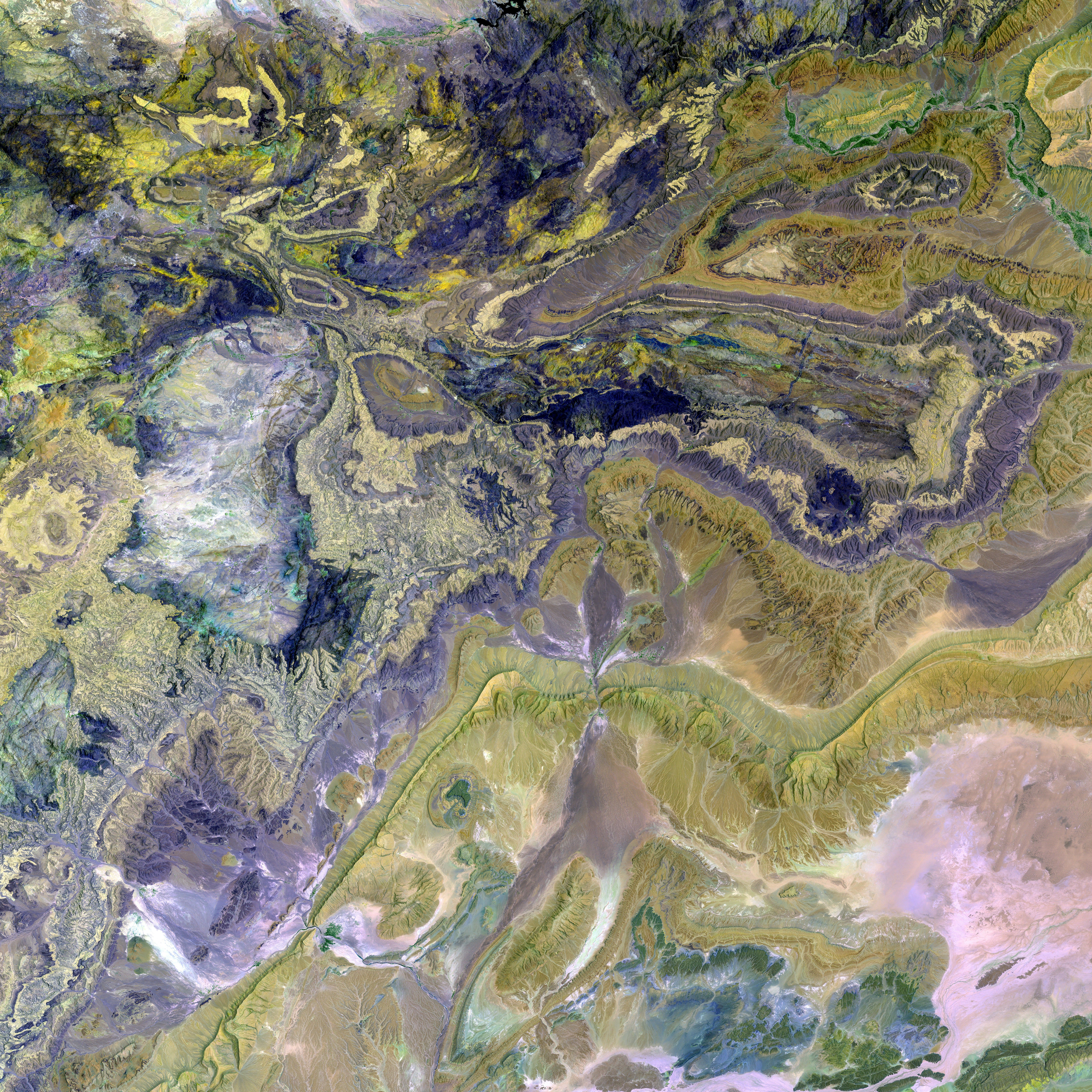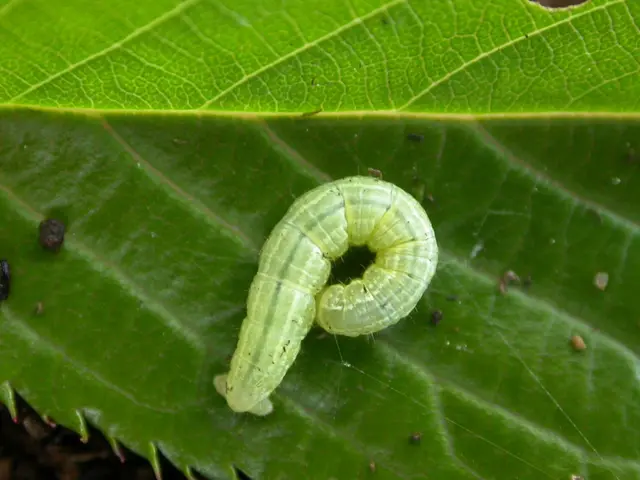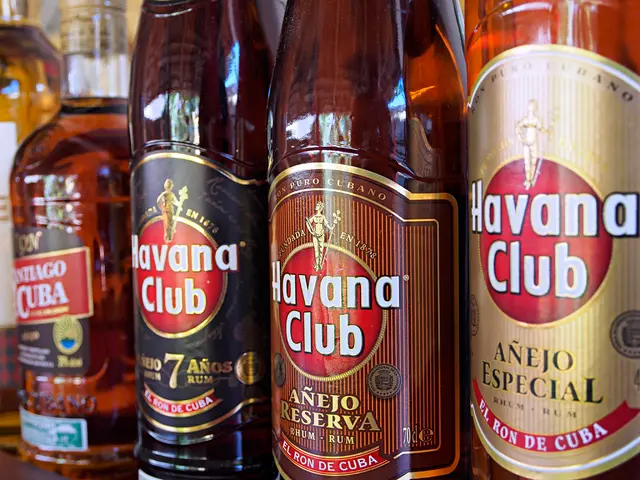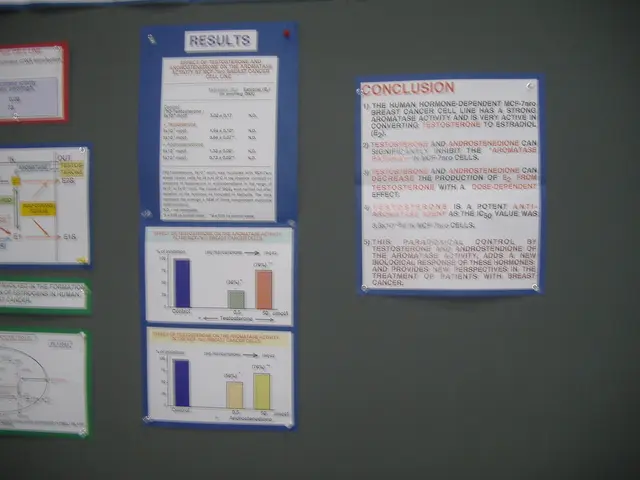Inquiry: Coffee Consumption and Potential Decrease in Colorectal Cancer Risk
Scoop on Coffee and Cancer Risk: What's the Bean Dealio?
Hear this, folks! Multiple studies by the World Cancer Research Fund (WCRF) point out a potential connection between coffee consumption and reduced chances of contracting colorectal and bowel cancer.
Here's a juicy nugget for ya. A study published in the International Journal of Cancer revealed that sipping on 4 cups of joe a day could lower the risk of colorectal cancer resurfacing by a whopping 32%! This study enveloped 1,719 individuals with colorectal cancer in stages 1 through 3.
But, I gotta tell ya, coffee's impact on our gut isn't merely limited to a morning pick-me-up. It appears to:
- Slash oxidative stress
- Boost gut bacteria
- Stymie tumor growth
- Help shield against nonalcoholic fatty liver disease
That's not all, folks! The research suggests that coffee drinkers are less likely to develop colorectal cancer in the first place.
Now, the world of caffeine isn't black and white. Caffeinated coffee seems to spark a higher risk of rectal cancer, but not colon cancer. This discrepancy could signify that our bodies process the two types differently.
Here's what helps you ward off colorectal cancer:
- Get movin' and groovin' with some physical activity
- Embrace a nutritious diet
- Ditch the bad habits like tobacco and alcohol
Read on for more deets:
- What's the scoop on coffee and cancer?
- Cancer-whackin' grub to lower cancer risk
- Eating your way to a lower cancer risk
Now, let me toss in some extra info from our research:
- A humongous Swedish study including 61,000 women found no association between coffee consumption (caffeinated or decaffeinated) and the risk of total colorectal cancer. This research suggests that moderate to high coffee intake doesn't impact colorectal cancer risk[1].
- A meta-analysis umbrella review of 40 cohort studies hinted at a 18% lower overall cancer risk with high coffee consumption. Although it didn't spotlight colorectal cancer mainly, coffee did seem to lessen the risk for various cancers[2].
- Other studies and reviews argue that both caffeinated and decaffeinated coffee can drill down the risk for several cancers, as components beyond caffeine, like polyphenols, are the movers and shakers[4].
- A source hints that imbibing one or two cups of black coffee daily might shave off approximately 26% of the chances of developing colorectal cancer, but it doesn't specify the caffeine content[5].
In a nutshell, existing evidence/research suggests:
- Neither caffeinated nor decaffeinated coffee reinforces the risk of colorectal or rectal cancer.
- Some studies indicate a slight protective effect of coffee (both caffeinated and decaffeinated) against colorectal cancer, though findings remain inconsistent.
- The protective effects are probably due to bioactive compounds in coffee other than caffeine.
So, for colorectal and rectal cancer risk specifically, both caffeinated and decaffeinated coffee seem safe, with a slight risk reduction, but it's too early to declare coffee as a definitive protector[1][2][4][5].
- In the realm of oncology, there's a potential connection between coffee consumption and a decreased risk of colorectal and bowel cancer, as suggested by multiple studies by the World Cancer Research Fund (WCRF).
- A study in the International Journal of Cancer revealed that consuming four cups of coffee daily could lower the risk of colorectal cancer recurrence by 32%.-The research indicates that coffee drinkers might be less likely to develop colorectal cancer in the first place, due to its ability to slash oxidative stress, boost gut bacteria, stymie tumor growth, and help shield against nonalcoholic fatty liver disease.
- However, the contradictory findings show that caffeinated coffee may increase the risk of rectal cancer, but not colon cancer, indicating different processes in our bodies for the two types.







